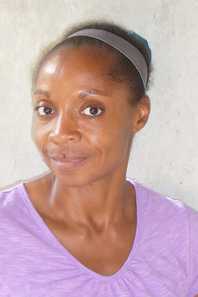Featured Poet: Allison Joseph
Cover Art: "The Lawless River" by Krista C. Graham, acrylic
|
Last Offering
Writing While Dead
The Trouble With Eyes
Proposal on a Plate: Orango Island, Guinea-Bissa
“Is Your Pool Baby Safe?"
|
|
ALLISON JOSEPH is part of the Creative Writing faculty at Southern Illinois University, proudly in Carbondale, Illinois, where she serves as Editor and Poetry Editor of Crab Orchard Review, moderator of the Creative Writers Oppourtunities List, and Director of the Young Writers Workshop, a summer writer's program for teem writers.
Her books and chapbooks include Mercurial (Mayapple Press), What Keeps Us Here (Ampersand Press), Soul Train (Carnegie Mellon University Press), In Every Seam (University of Pittsburgh), Worldly Pleasures (Word Tech), Imitation of Life (Carnegie Mellon UP), Voice: Poems (Mayapple Press), My Father's Kites (Steel Toe Books), Trace Particles (Backbone Press), Little Epiphanies (Imaginary Friend Press), Multitudes (Word Tech Communications), The Purpose of Hands (Glass Lyre Press), Mortal Rewards (White Violet Press), and Double Identity (Singing Bone Press). Allison Joseph is the literary partner and wife of Jon Tribble. |
next, Dylan Weir
